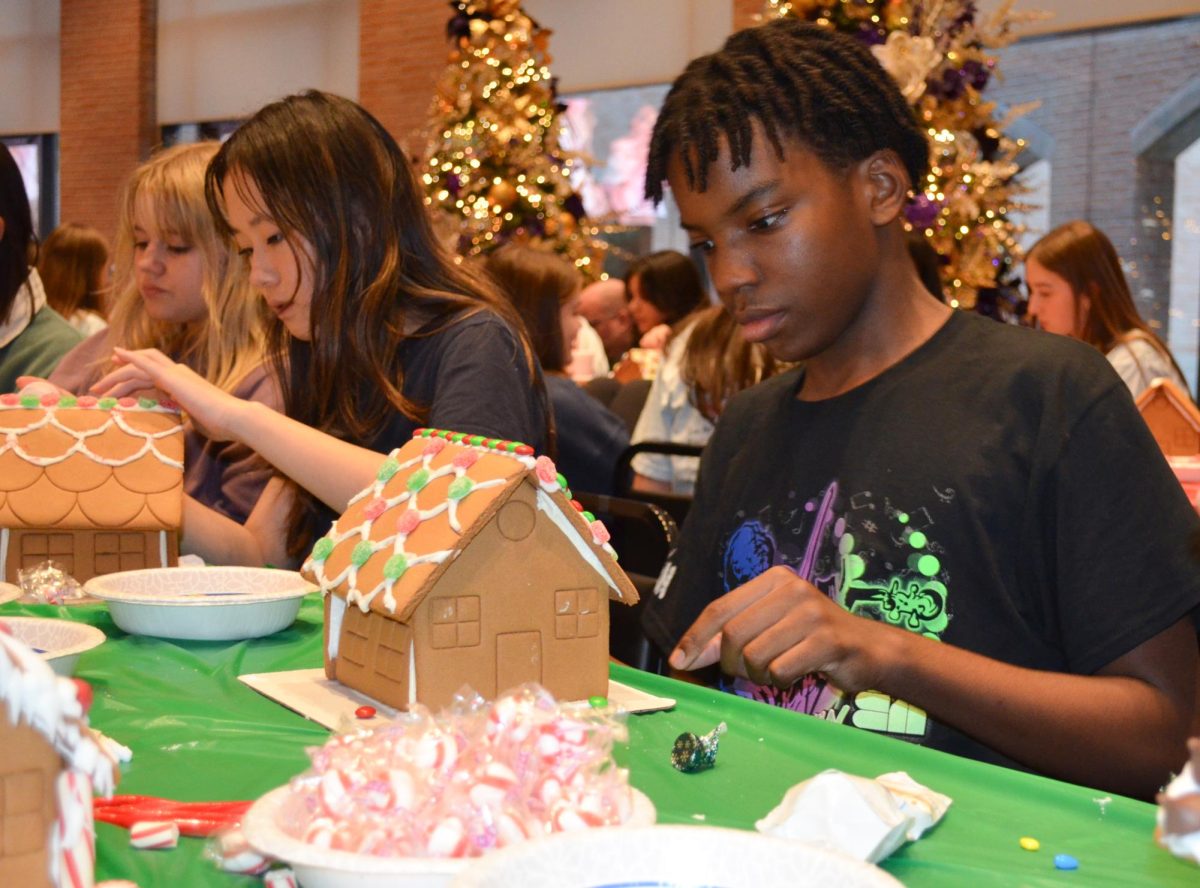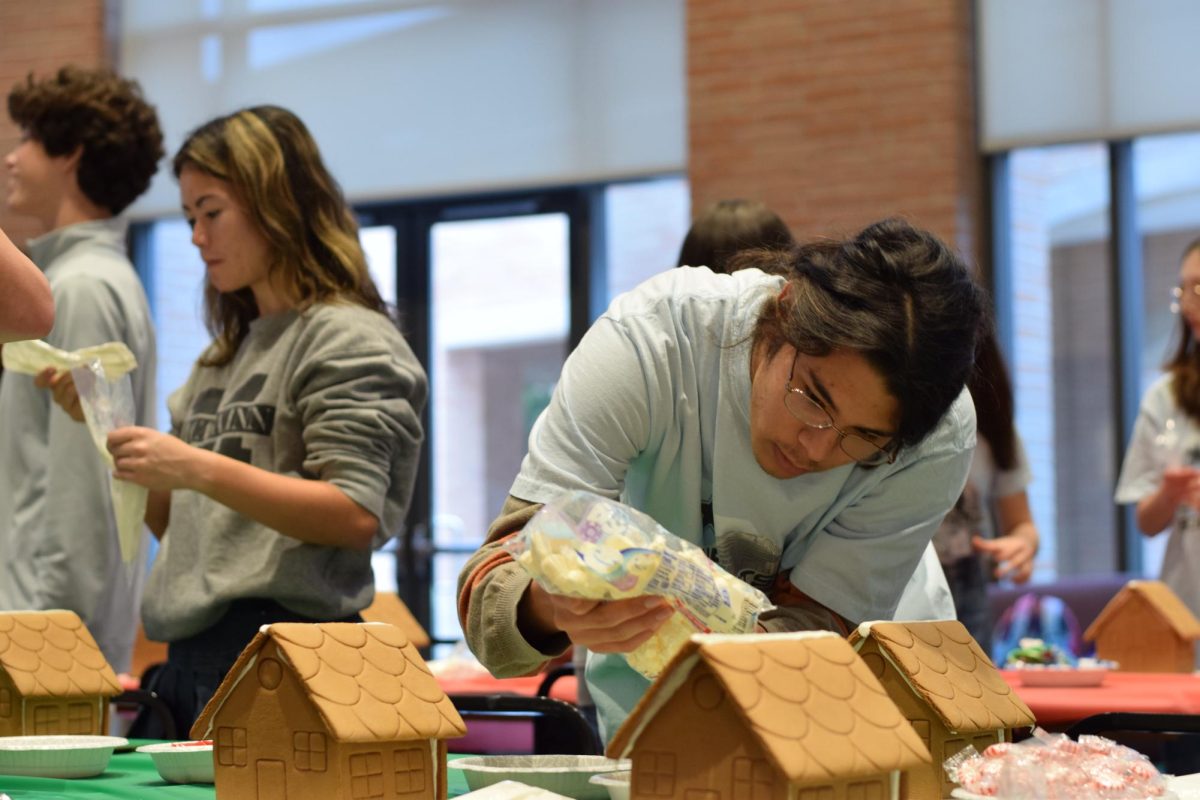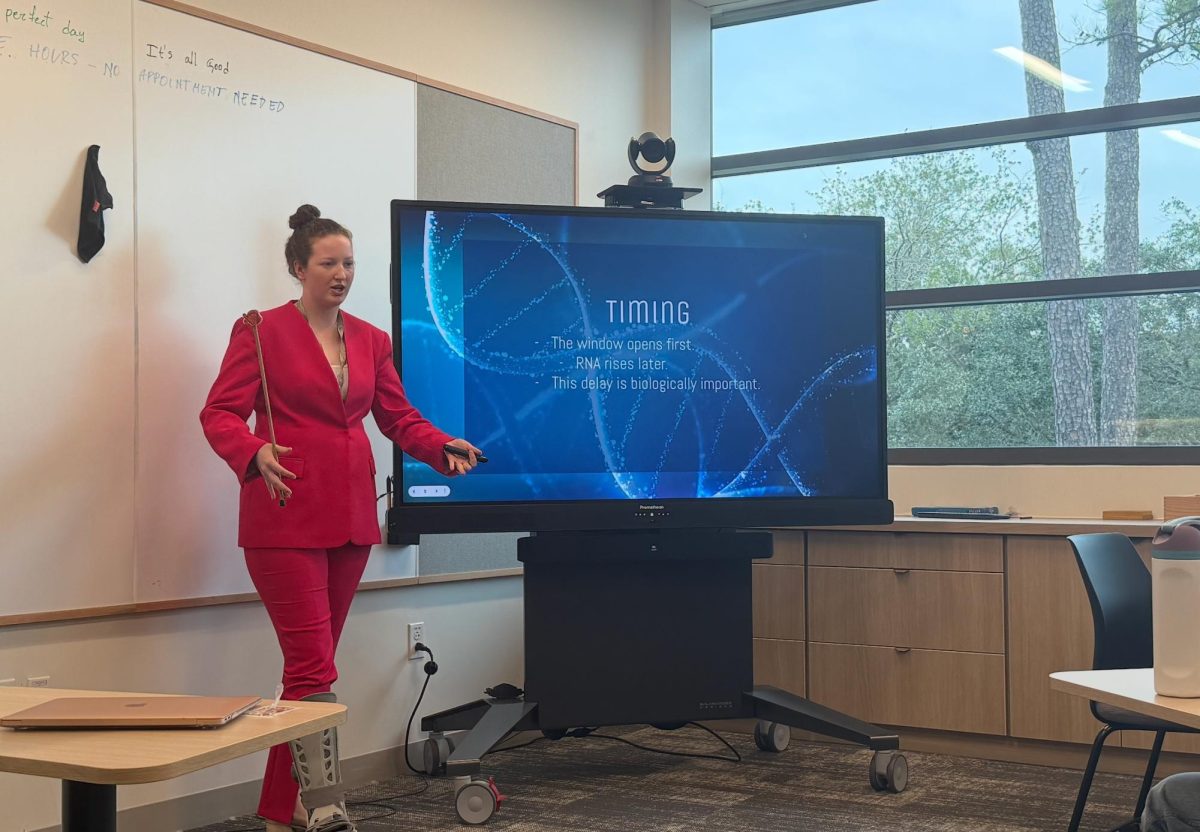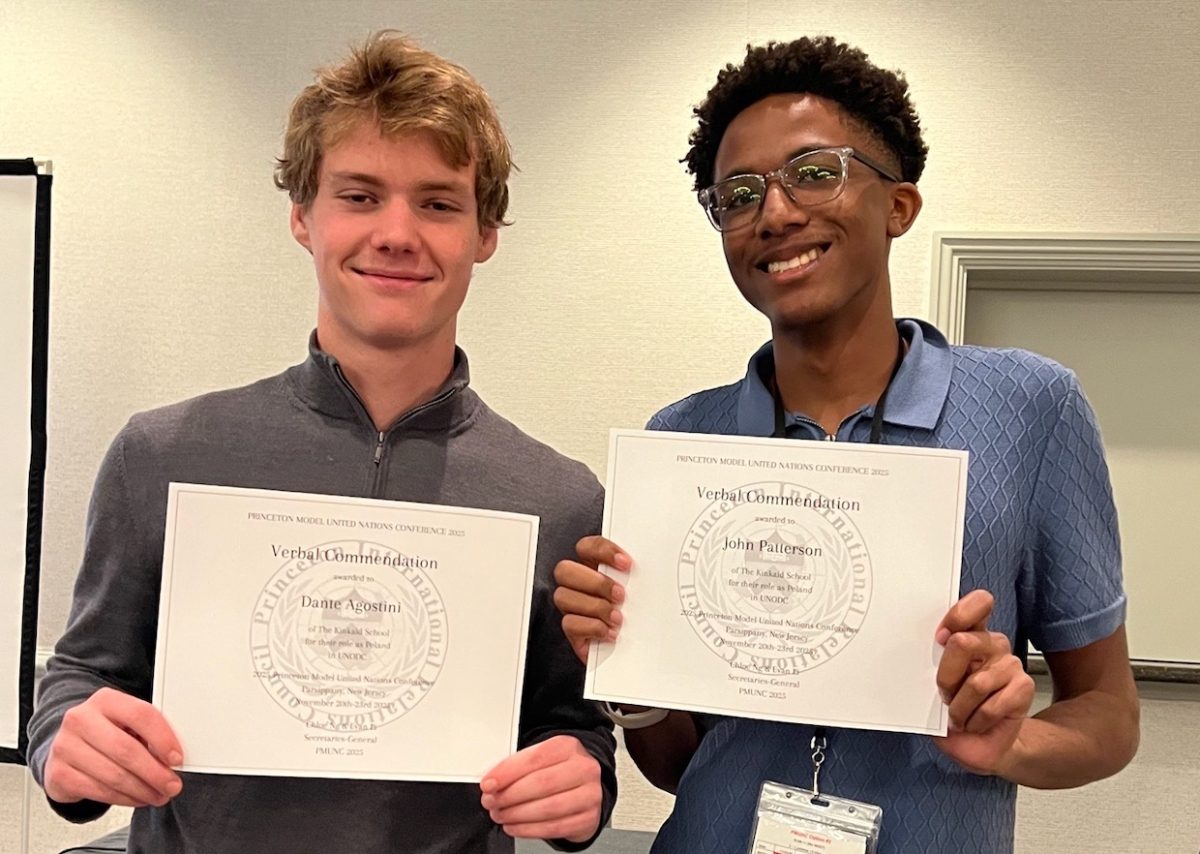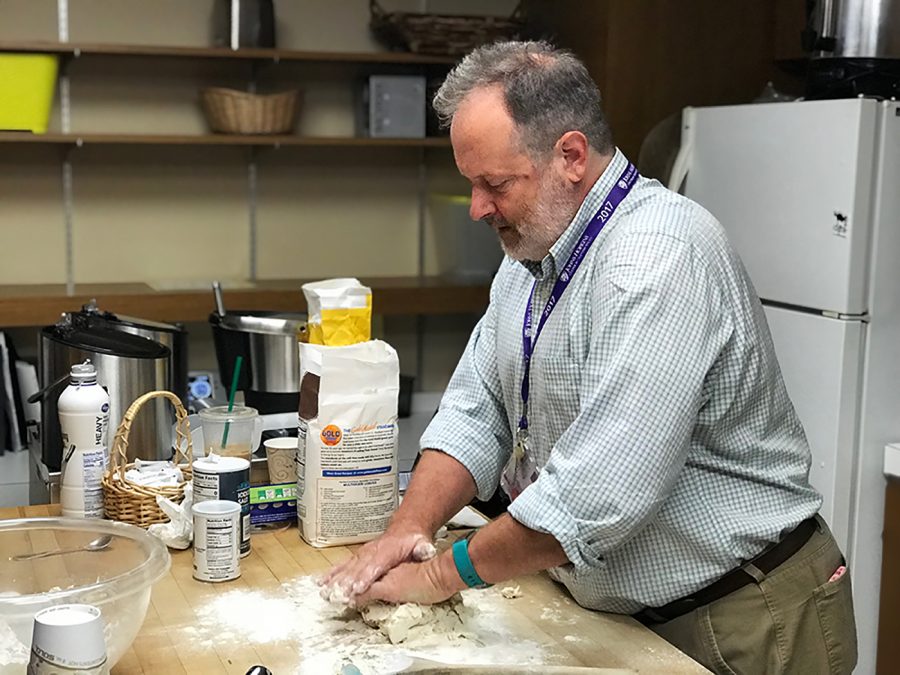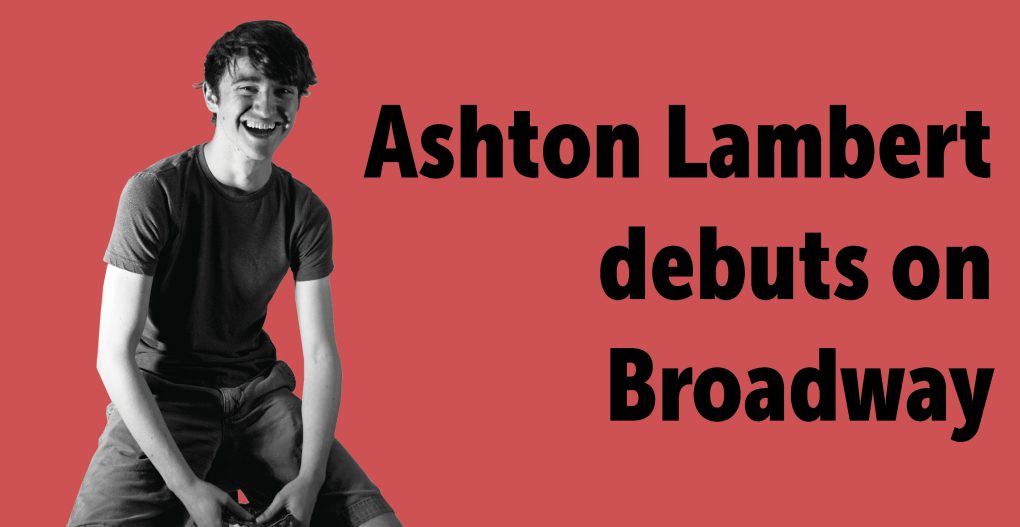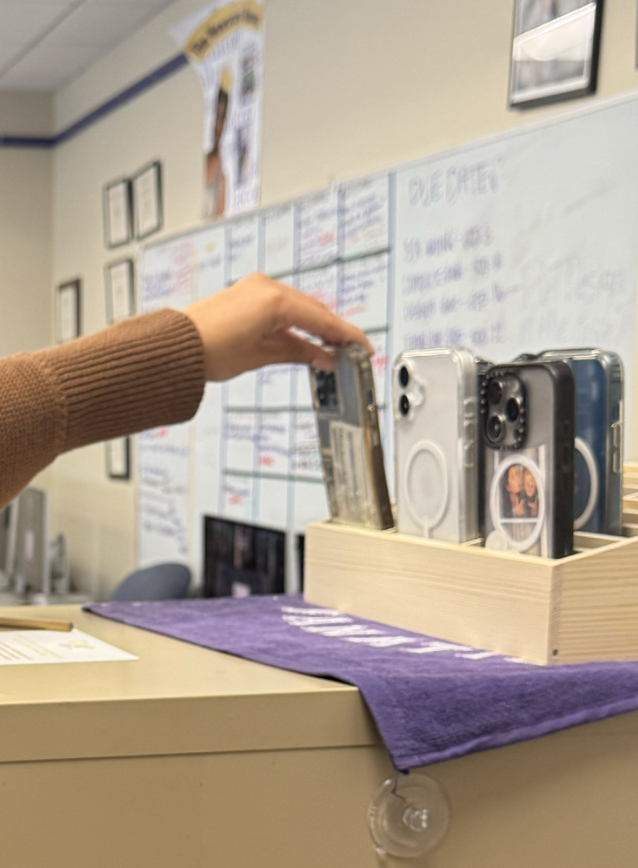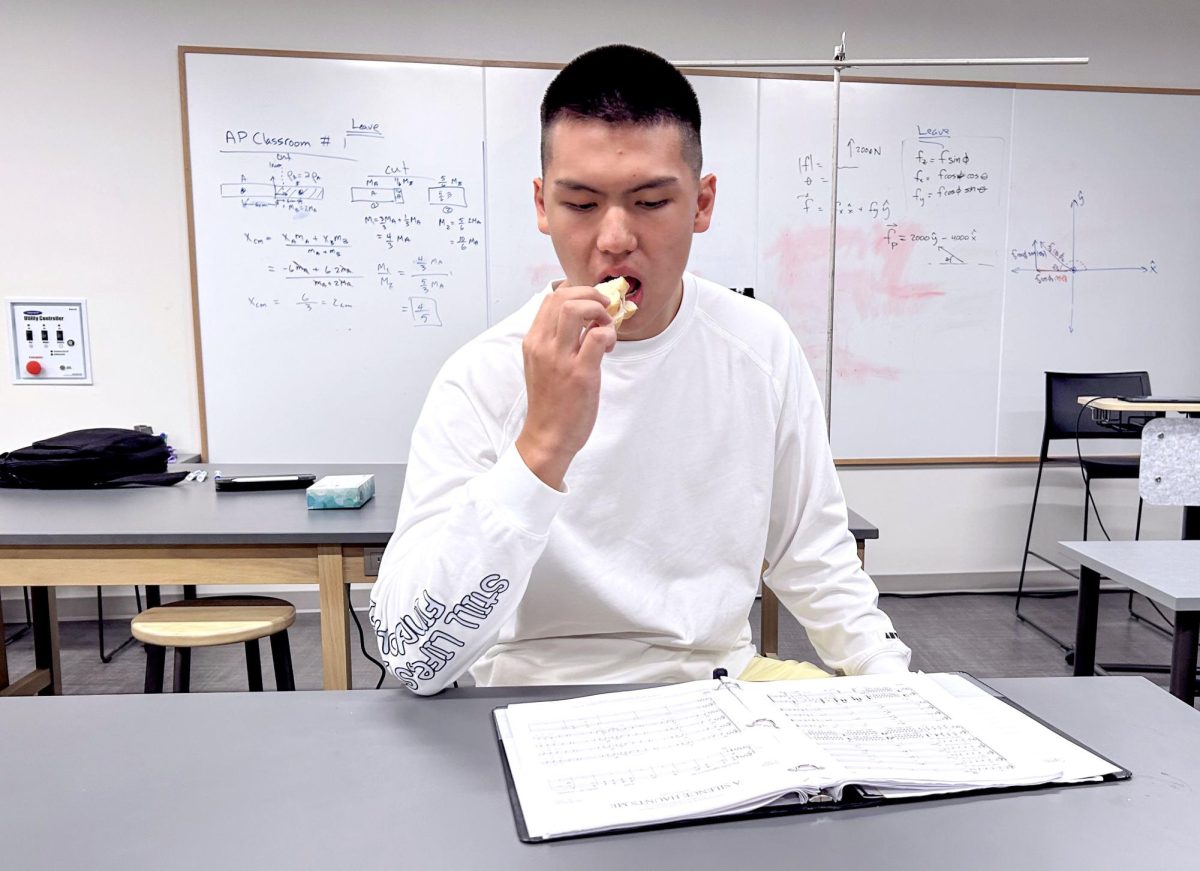Balanced Excellence: Though admirable, excellence may limit participation
The lead in the play, the quarterback of the football team, and the valedictorian all seem to have a place, a place where they can shine and be commended for being the best. However, what about the rest of us? Those who are cut from a JV sport, fail to make the ensemble for the musical, or aren’t taking all APs (and getting straight A’s)? Where is our place?
When you Google “kinkaid.org” as soon as you release your finger from the keyboard, you are redirected to a slideshow of dedicated students practicing “balanced growth,” as the mission statement reads, across divisions and in every area of performance: academics, arts, and athletics, commonly referred to at Kinkaid as “the three A’s.” As you scroll past the pictures, two large words dominate the screen: “balanced excellence.” But what does “balanced excellence” mean?
Headmaster Dr. Andy Martire outlined the concept: “We want to pursue excellence in all that we do – academics, arts, and athletics. Also, within each of those three, we need to work on and figure out balance, meaning how much time we are spending on certain activities, and the blend of activities within each of those three.”
Balanced excellence is the goal, but that doesn’t mean it has necessarily been achieved. Dr. Martire described the difficulties of this philosophy as “an ongoing challenge. In Kinkaid, we talk a lot about community, we talk a lot about One Kinkaid, yet we do a lot of sorting along the way. Starting when you apply, but even once you get in. We start sorting which math class, what role do you have, what playing time you get. It can be difficult because there are occasions when a student wants to be able to do something in athletics, fine arts, or academics, and is unable to do so.”
Academics: Students feel hindered by the recommendation process
In academics, balanced excellence can both expand and limit opportunities for student growth. Kinkaid provides students with depth and breadth in its curriculum: teachers offer a wide array of classes, especially for seniors, and students also have the opportunity to explore specific subjects at a higher level through Honors and AP classes. Nonetheless, some students feel limited by the recommendation process that is necessary to pursue more challenging courses.
“I wanted to take AP U.S History in an effort to challenge myself and to be a more competitive candidate going into the college process. Unfortunately, after discussing this with my dean and the history department, we came to the conclusion that I should stick with regular history,” Lena Provenzano (11) said disappointedly when discussing her experience trying to appeal a recommendation.
Another question is whether or not preparedness can simply be measured by grades. Kinkaid students are constantly told they worry too much about their grades; however, when a student wants to try a more challenging course, some feel like they cannot attempt the course based on the recommendation they receive at the end of the year.
However, this is not necessarily true. Head of Upper School, Mr. Peter Behr, clarified the answer to this concern: “I personally believe that a student who wants something enough should be allowed to stretch in a way that may be against a traditional recommendation based solely on grades alone.” He said that there is a “demonstrated motivation” component as well, meaning that a student’s drive to pursue a genuine interest in a particular subject area also plays a role in the recommendation process. This may provide students with a more optimistic outlook on the process as a whole.
Arts and athletics: Students react to being cut from the stage and the field
Similarly to academics, there are many different classes in the visual and performing arts ranging from Sculpture to Children’s Theatre that provide students with the ability to further develop their artistic skills. While the arts do provide students with vast opportunities, there are areas in which students who just want to participate are not able to. Theatre Company, Dance Company, and Encore historically have cut students, but in recent years all students were able to participate in the Upper School musical. However, this year students were cut from the Crazy for You cast for the first time since the 2014 production of Once Upon a Mattress.
“Seniority didn’t play a big factor because so many freshmen got put in the ensemble. Being cut as an upperclassman kind of sucked because we were in the play last year,” said Lara Lin (11) of her experience with the Upper School Musical.
While it is an unfortunate situation that not all students were able to participate, students do have the opportunity to take Children’s Theatre during their junior and senior years.
“That’s what it was built for,” said Director of Visual and Performing Arts, Mr. Scott Lambert. “And, we have 56 arts classes that we offer during the day. The courses, and opportunity to audition for all three theatrical productions, offer students numerous ways to be involved in the Arts at Kinkaid,” Mr. Lambert said.
Like the musical, in JV sports, some students are cut from the program: “I worked very hard. I went to all the before school lacrosse practices, and ran the timed-mile in the freezing cold. It was frustrating how hard I worked, but was ultimately cut,” said Georgia Williams (12) of her freshman year experience being cut from the JV lacrosse team.
Along with cardio, new recreational versions of certain sports are starting to increase student athletic participation.
Tennis and golf are two of Kinkaid’s most highly competitive teams, and it is nearly impossible to make either of them if students are new to the sport. However, there is now both a golf and tennis recreational option for such students. This provides balance for two different types of students: those who simply want to be involved and those who strive for excellence at a higher level in athletics.
New Director of Athletics, Mr. David Holm, has many ideas on how to further increase participation in athletics.
“Areas that we are looking at right now to be able to expand athletic interests would be in sports medicine working with our trainers, if that is a possibility, and sports information. I envision someone being assigned to two or three teams during a season who would write blogs and work with our athletic department communications, which is a growing area career-wise, same with videography,” Mr. Holm said.
Finding your place: how to cope with not being the best
While academics, arts, and athletics are each continuing to develop the concept of balanced excellence at Kinkaid, many students are also trying to figure out their place in the community when they are not the star. Is there room for anything other than excellence?
Mr. Behr commented on this question.
“Students at Kinkaid can not all be ‘stars’ in that traditional sense given that there can only be one lead, valedictorian, or starting field hockey goalie. However, I hope that at Kinkaid, we can inspire all students to be the best versions of themselves, through grit and determination, through appropriate risk-taking, and through the cultivation of strong and supportive relationships,” Mr. Behr said.
As Dr. Martire said, sorting is inevitable, especially in a school of Kinkaid’s size, and when students’ label themselves, it does have an emotional impact.
Upper School Counseling Psychologist, Dr. Laura Lomax-Bream, said she has noticed the feeling of “I’m not the best at anything” as a common theme among students who come to see her.
“We do specialize to some extent as we get older. We just don’t want to make people feel like you can’t possibly make a contribution if you’re not going to be the number one thing… We’re not always great at giving our kids the message that we value everyone’s participation and that showing up and doing something is incredibly valuable,” said Dr. Lomax Bream.
“If only the best baseball player shows up, there is no team and there is no game. There’s no way they can play every position on the team and hit every time. The same is true for the show. If only the lead shows up, it’s not a show, it’s only a monologue.”
Balanced excellence may not be fully implemented at Kinkaid yet; however, the concept does provide a standard to strive for. In pursuit of fulfillment, Dr. Lomax-Bream said it is important for students to have ways in which to cope with not being the star.
“You want to make sure you have a place, where you go and feel like the people there, or the person there, depending on how lucky you are, values you for you and who you are, and not just what you can do,” Dr. Lomax-Bream said.


